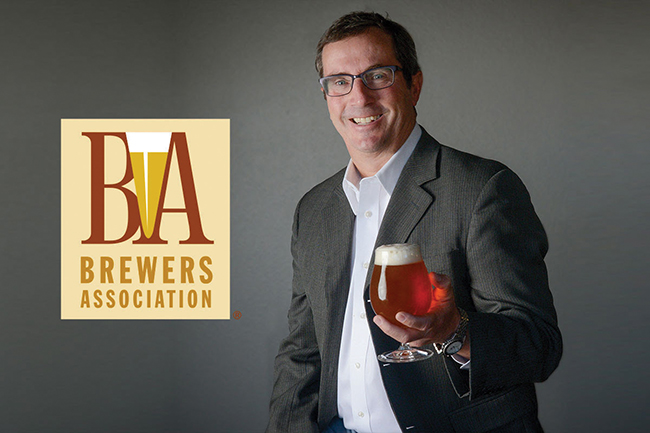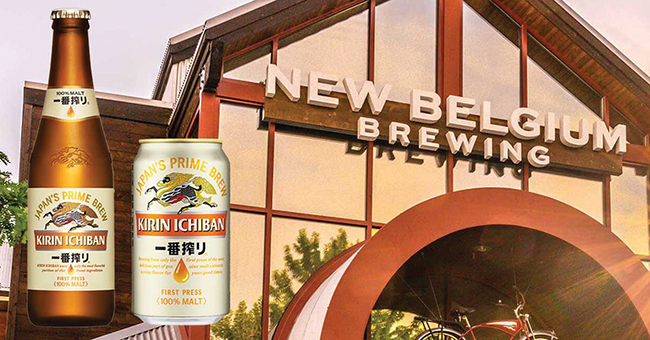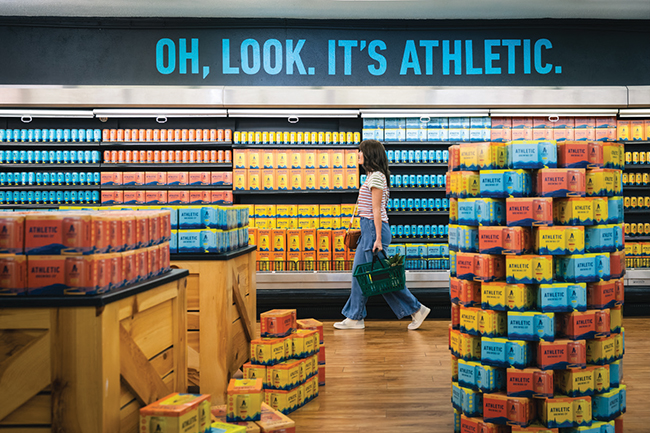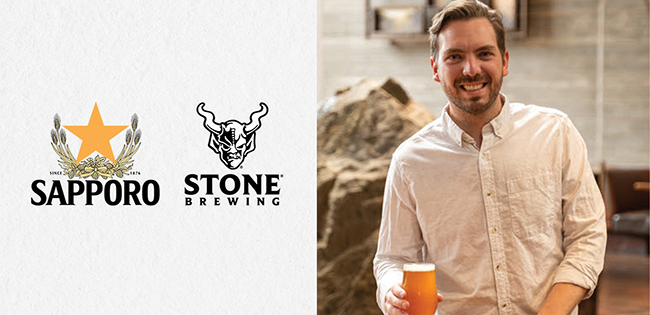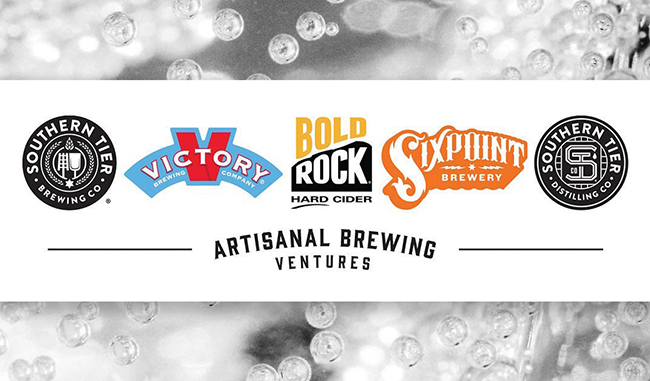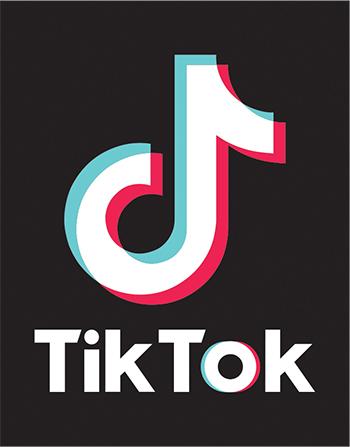Brewscape: The Latest Craft Beer Brand News
Brewers Association CEO Bob Pease to Retire, Search Firm Retained to Lead Process
Brewers Association (BA) president and CEO Bob Pease will retire next year after more than three decades with the trade association, the organization announced July 10.
Pease will step down from his role in early 2025 “once his successor is in place,” according to the announcement.
The BA’s board of directors has retained Kittleman & Associates, a search firm dedicated to executive searches for nonprofit organizations, to lead the recruitment of a new president and CEO.
“After careful consideration, I believe it is time to help this great association transition to new leadership and for me to move on to new endeavors,” Pease said in the release. “Over the last three decades, I have witnessed the Brewers Association grow from a small, narrowly focused association to one that is now a power player on important issues facing the industry domestically and internationally.
“Throughout my time at the helm of the Brewers Association, we have helped our members navigate explosive growth and unprecedented challenges. In doing so, we have put the BA on the map as a political force. Representing this iconic community, its brands, and the incredible people who embody passion in their craft has been an absolute honor. I look forward to seeing continued success in the industry.”
BA board president and Right Proper Brewing co-owner Leah Cheston called Pease “an unwavering advocate for small and independent brewers.”
“He spearheaded the organization during a critical time for the industry, growing the craft beer market share to 13% and supplying countless tools to help the craft brewing community thrive, from professional resources and tax savings, to hosting world-class events,” she said in the release.
“We thank Bob for his steadfast leadership and look forward to partnering with him to ensure a smooth transition and search for his successor.”
Pease has spent more than 32 years at the BA, and has served as CEO since 2014. He first joined the trade group in 1993 as a customer service manager, and later held roles including operations director, vice president and COO.
Kirin’s US Production to Move From Anheuser-Busch to New Belgium in 2025
New Belgium will take over production of Kirin Ichiban and Kirin Light in the U.S. when the Japanese lager brand’s contract brewing agreement with Anheuser-Busch InBev (A-B) expires later this year, announced New Belgium, which is a subsidiary of Kirin-owned, Australian-based Lion.
A-B will continue to brew and distribute the Kirin brands through the end of 2024.
Starting in January 2025, New Belgium will begin marketing, sales and production of Kirin Ichiban and Kirin Light at its facilities in Fort Collins, Colorado, and Asheville, North Carolina. The company is working to “identify any potential distributor alignment needs that may arise in early 2025,” according to a New Belgium spokesperson.
Shaun Belongie, New Belgium CEO, thanked Kirin in the announcement “for entrusting New Belgium as stewards of Kirin Ichiban and Kirin Light across the United States.”
“We’re excited to grow our production portfolio and we’re confident in our capacity to expand upon the success of these powerful brands,” he said.
Masakazu Ashida, Kirin Brewery GM of overseas business department, added: “We appreciate Anheuser-Busch’s many years of strong business partnership supporting Kirin Ichiban and Kirin Light in the U.S. Moving these brands to New Belgium is a logical decision as we consider the strategic direction of our business in the U.S for years to come. We are grateful for all parties’ collaboration and commitment to ensuring continued success of our brands during this time of transition.”
Kirin’s U.S. brewing and distribution arrangement with A-B began in 1996. In August 2006, A-B announced an expansion of its “10-year alliance” with Kirin, taking over marketing and sales for the Kirin brands, while Kirin retained the trademarks for its brands.
At the time, Kirin’s beers were brewed at A-B’s Los Angeles brewery and distributed by the company’s 600 distributors. A Facebook page states that the beer brands are “brewed under Kirin’s strict supervision … in Los Angeles, CA and Williamsburg, VA.”
Athletic Brewing Closes On $50M Equity Financing Round
Fast-rising non-alcoholic beer maker Athletic Brewing Company has closed a $50 million “equity financing round” led by private equity firm General Atlantic, with several key investors from previous fundraising rounds also participating.
The latest funding round comes 21 months after a $50 million Series D round led by Keurig Dr Pepper (KDP) that closed in November 2022.
Following the latest capital infusion, General Atlantic will receive a seat on Athletic’s board. Although the full composition of Athletic’s board has not been publicly disclosed, investment firm TRB Advisors, which Athletic co-founder Bill Shufelt described as Athletic’s “largest investor across multiple rounds,” KDP and private equity firm Alliance Consumer Growth each hold seats on the board.
The new equity financing round is being earmarked to “drive continued long-term growth,” including Athletic’s purchase of another San Diego-based Ballast Point production facility, as well as expanding international sales of its NA beer.
Shufelt told Brewbound that Athletic is now well-positioned to finance capital projects from either “equity debt or cash flow from operations.”
“Interest rates are so high these days, [so] equity made sense in this instance [for] funding a great project that solidifies our capacity for the future,” he explained. “But also a big part of the reason we wanted to do equity was we had the chance to invite one of the most respected world-class investors onto our cap table, and really importantly, is they have a very long-term vision, no time horizon, they’re super excited about the category we’re trying to innovate in and and really great people.”
General Atlantic’s portfolio covers several sectors, including climate, consumer, financial services, healthcare, life sciences and technology. Existing investments include data firm Fintech, taco chain Torchy’s Tacos and luxury brand Tory Burch.
Andrew Crawford, General Atlantic managing director and global head of consumer, in a statement in the announcement called Athletic “the category-defining brand in non-alcoholic beer.”
“We intend to leverage our international platform and capabilities across technology, digital marketing, and merchandising to help the business achieve its potential,” he continued.
Across six funding rounds, Athletic has now raised around $225 million, including a $75 million Series C round in May 2021 (led by TRB Advisors, private equity firm Alliance Consumer Growth and more than 25 existing investors), a $17.5 million Series B round in 2020 (including TRB and more than 25 existing investors), a $3 million Series A round (including TRB, Tastemaker Capital, and Blake Mycoskie), and a $3 million angel round in 2017.
A Wall Street Journal report on the equity financing round valued Athletic at $800 million. The Journal added that Athletic’s sales topped $90 million in 2023.
Sapporo-Stone Officially Appoints Zach Keeling as CEO
Sapporo-Stone Brewing is officially making Zach Keeling its new CEO.
Keeling was appointed interim CEO in January when then-CEO Maria Stipp stepped down from the role after guiding the Escondido, California-headquartered brewery through its 2022 acquisition by the Japanese brewing giant and through its integration.
Keeling previously served as CFO and VP of strategy. The company credited him with establishing the integrated company’s “long-term strategic plans.”
“Sapporo-Stone is on an impressive trajectory, and I’m honored to lead this talented team toward becoming a top 10 brewery by volume in the U.S.,” Keeling said in the announcement. “I’m committed to driving our growth while prioritizing people and culture.”
The appointment follows the completion of phase one of a $60 million brewery expansion that increased capacity across the company’s production facilities in Escondido and Richmond, Virginia, to around 700,000 barrels annually.
In 2023, Sapporo-Stone ranked as the 12th largest U.S. brewery by volume. The company operates bicoastal brewing facilities, five taproom locations and two Stone Brewing World Bistro & Gardens spaces. The company has 850 workers.
Layoffs Reported at Artisanal Brewing Ventures
Artisanal Brewing Ventures (ABV) has laid off about two dozen employees this week, Brewbound has learned.
The craft rollup – which includes Victory Brewing, Southern Tier, Sixpoint Brewery and Bold Rock Cider – primarily eliminated jobs in sales, according to a person with direct knowledge of the situation whose identity Brewbound has agreed not to reveal.
ABV did not share how many people were affected by the layoffs. A spokesperson shared the following statement with Brewbound:
“Industry headwinds and high levels of inflation have impacted our business and like so many others in the industry, we are right sizing the organization to fit current volume conditions. The reorganization will allow us to be more operationally efficient and position the company for future growth in the alcohol beverage industry. Those impacted by the changes will be receiving severance, medical benefits and outplacement services.”
Many of the affected employees were offered severance packages that represented one week of pay per two years of service, according to Brewbound’s source.
ABV restructured its sales force in December 2022 to reorganize its efforts on off-premise retail. That round of cuts affected “a handful” of jobs, CEO John Coleman told Brewbound at the time.
ABV was the seventh-largest craft brewery in the country by volume in 2023, according to the Brewers Association (BA). Last year, its input increased +1%, to 394,676 barrels of beer, which accounts for 1.69% of the BA-defined independent craft beer sold in the country.
TikTok Opens Ad Platform to Beverage-Alcohol Brands in the US
Popular and controversial social media platform TikTok recently opened advertising on its platform to beverage-alcohol brands in the United States, due in part to its user base aging up.
At least 73.8% of TikTok’s users are of legal drinking age (LDA), according to the Distilled Spirits Council of the United States (DISCUS), which sets guidelines for members’ usage of social media for marketing, as do other bev-alc trade groups.
The Beer Institute (BI) and Brewers Association (BA) both require members to ensure audiences for advertising are at least 73.8% LDA. The BI amended its advertising code to include the 73.8% metric in September 2023.
The 73.8% ratio represents the percentage of LDA adults that make up the country’s population, and is adjusted with each decennial census. DISCUS chief legal officer Courtney Armour said the organization has added TikTok to its list of approved social platforms after it “confirmed their demographic data.”
As it begins to allow advertising from bev-alc brands, TikTok has published its own rules governing U.S. advertising for alcoholic products, mixers and accessories, and events sponsored by alcohol brands.
In all instances, advertisers must target users 25 or older, be registered in the region where their ads are targeted (for example, U.S.-based brands can only advertise in the U.S.), work with a TikTok sales rep to confirm eligibility, and “comply with all applicable laws and regulations.” In addition, both products and mixers/accessories may be required to provide government-issued license documents.
TikTok still prohibits ads for several alcohol-adjacent products or avenues to sales:
Alcoholic beverages with “add-ins,” such as THC or CBD;
Hangover relief products;
Homemade alcoholic beverages;
And “retail or e-commerce ads, [which] are those that promote the sale or delivery service of alcoholic beverages.”
“Advertising on social media platforms is the most common and popular format to talk to consumers in today’s marketplace,” DISCUS wrote on its social media policy page. “Beverage alcohol advertising is no different in this regard, but suppliers must take precautions to minimize the risk of exposure to those under the legal purchase age.”


Receive your free magazine!
Join thousands of other food and beverage professionals who utilize BevNET Magazine to stay up-to-date on current trends and news within the food and beverage world.
Receive your free copy of the magazine 6x per year in digital or print and utilize insights on consumer behavior, brand growth, category volume, and trend forecasting.
Subscribe